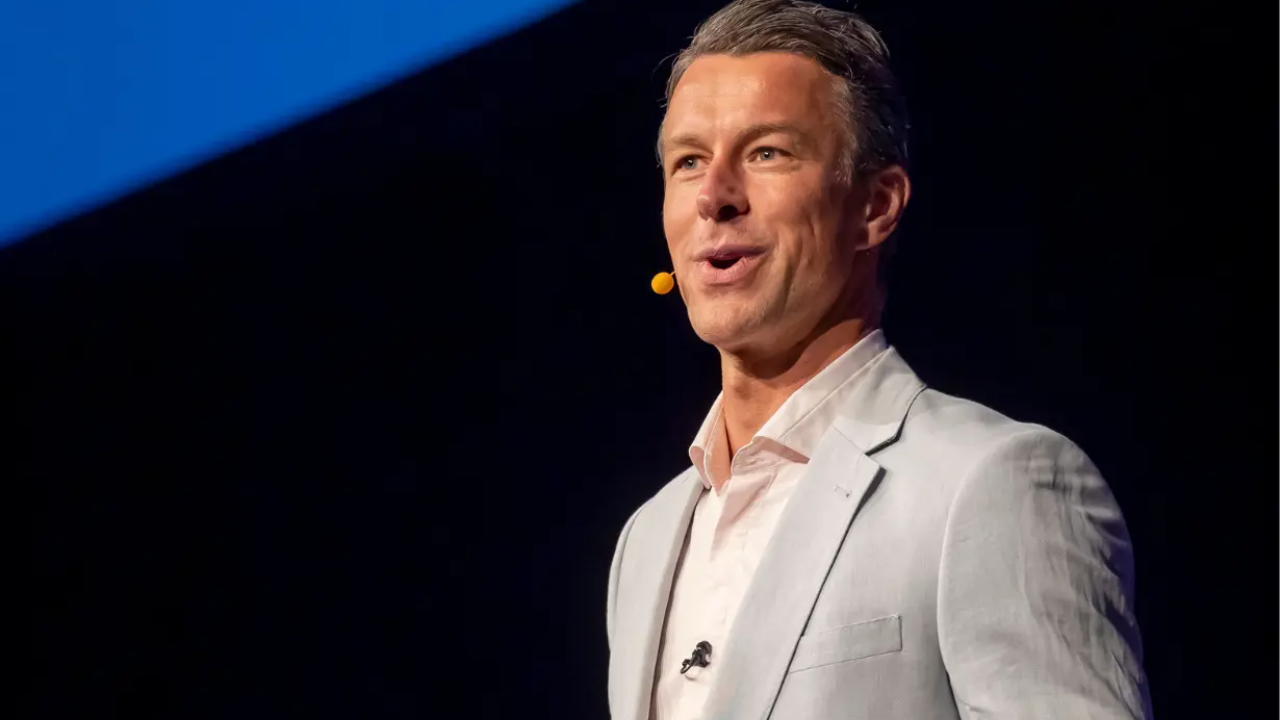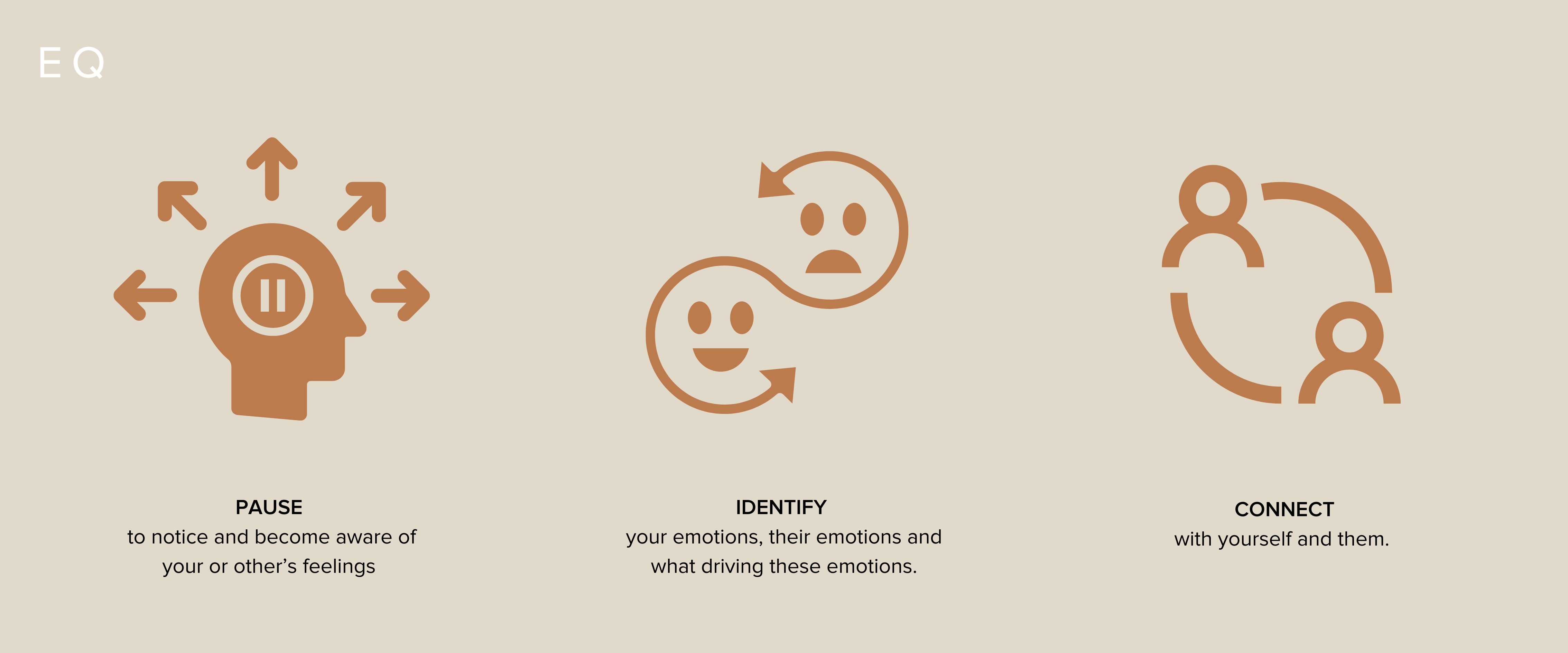What is emotional intelligence (EQ) and how it can help you become a better leader
Apr 06, 2023
Imagine you’re in a meeting where Sarah is talking, April interrupts and takes over the discussion point. You notice that Sarah becomes quiet and shrinks back into her seat.
What do you do?
- Make a note to talk to Sarah after the meeting.
- Nothing, it doesn't matter who finishes the point.
- Once April has finished talking you say to Sarah, ‘Sarah, I noticed you were cut off, would you like to finish your point’
The first shows emotional awareness with an intent of future action, the second is a low emotional intelligence response and the third employs high levels of emotional intelligence. Where as a leader, you have acknowledged the emotion and behaviour of a team member who needs support and addressed it immediately. Becoming more emotionally intelligent doesn’t just allow you to become more informed to make better decisions, it helps connect you to your team, making them feel respected, valued and happier. Emotional intelligence isn’t just a skill you have, it’s one you can grow.
Before we go into ways you can improve your emotional intelligence, it’s important to understand what it actually is.
What is Emotional Intelligence?
Emotional intelligence is the ability to recognise and understand your own emotions and the emotions of others. With that awareness, you can then manage behaviour and relationships with care and consideration. There are five elements of emotional intelligence based on Daniel Goleman’s model.
The Five elements of emotional intelligence are:
- Self-awareness: The awareness of your own emotions and how they impact your thoughts and behaviour.
- Self-regulation: Managing your own emotions and behaviours in order to respond effectively to situations.
- Motivation: Knowing how to use your emotions to drive your actions and achieve your goals.
- Empathy: Understanding and sharing the feelings of others and using that understanding to build strong relationships.
- Social skills: The awareness and ability to connect to others.
Simply, each of these elements can be summarised by taking three actions to train your emotional intelligence.

Why emotional intelligence as leader is important
Emotional intelligence creates the space for a psychologically safe culture built on respect, awareness and compassion. Making your team happier and more effective.
Leaders with strong emotional intelligence benefit from:
- Better Communication
- Stronger Relationships
- Increase productivity
- Improved problem-solving skills
How to improve your emotional intelligence
- Reflect on your own emotions: Take the time to reflect on your own emotions and how they impact your thoughts and behaviour.
- Prompt: Without passing judgement, how do you feel right now?
- Practice self-regulation: Work on managing your own emotions and behaviours in order to respond effectively to situations.
- Breathing Exercise for calm: Take two breaths through the nose and one breath sighed out the mouth
- Seek feedback: Ask for feedback from others on your emotional intelligence and how you can improve. It can help you identify areas for growth and development. Make sure you ask questions that are specific to get valuable feedback.
- Example prompt to ask for feedback: What do you think is currently working or not working with my communication style
- Engage in activities that foster empathy: Take part in activities that help you to understand and share the feelings of others to improve your empathy.
- For example, volunteer or participate in a mentorship program.
- Practise active listening: To connect with your team, you have to really hear what they are telling you.
- Ask clarifying questions, make eye contact and mirror the other person.
By improving your emotional intelligence you are building the foundation to become a more mindful and compassionate leader.
Get a deeper understanding of your emotions, with our free Emotional Intelligence Audit here: https://www.eqminds.com/emotional-intelligence-reflection-exercise-free-download
Jay Pottenger is a Speaker, Accredited Mindfulness & Meditation coach and General Manager at EQ Minds. He works with high profile clients like IAG, Estee Lauder, BOQ and Class Limited to guide productivity and performance through mindfulness.
Get in touch with EQ Minds today.
